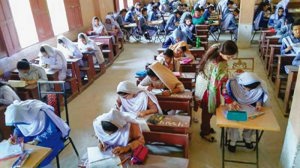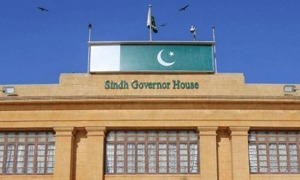
Balochistan and Punjab Announce Winter Vacation Schedules, Prioritizing Student Safety from Harsh Weather
The Balochistan government has officially declared that all government schools in the province's colder, northern regions will commence a two-and-a-half-month winter break starting December 16 . The extended closure is a strategic measure to safeguard millions of students from the severe and often debilitating winter conditions that sweep across the area.
Simultaneously, the Punjab School Education Department has released its own winter vacation schedule, setting a closure period from December 23, 2025, to January 11, 2026 , with all institutions reopening on January 12, 2026 . The coordinated announcements highlight the regional approach to managing academic activities around challenging seasonal weather. You can also view Class 5th Guide .
Balochistan’s Proactive Measure for Student Welfare
The decision to close schools in Balochistan’s chillier zones for an extended period is not an emergency measure but a well-established, pre-emptive policy. The province, known for its diverse and rugged terrain, experiences particularly harsh winters, with temperatures often plummeting below freezing, accompanied by heavy snowfall and disrupted transportation.
An official from the Balochistan Education Department, speaking on background, emphasized that the primary concern is student and staff safety.
“The well-being of our students is paramount. Many children in these remote and mountainous regions have to travel long distances to get to school,” the official stated. “Keeping schools open during the peak winter months exposes them to significant health risks like hypothermia and pneumonia, while also making travel treacherous. This extended break is a necessary, child-centric policy.”
Pre-Vacation Academic Rush: Examinations in Full Swing
In anticipation of the long break, a flurry of academic activities is currently underway across Balochistan. In districts like Chaman , annual examinations for junior classes have already commenced.
According to a circular issued by the Balochistan Education Department, the annual examinations for students from classes one to seven began on November 16 and are scheduled to conclude on November 24 .
Following closely, the crucial Class 8 examinations , which are conducted under the auspices of the Balochistan Board of Intermediate and Secondary Education (BBISE) , are set to begin on November 24 . This scheduling ensures that all major academic assessments are completed before the winter closure, allowing students to begin their vacation without pending academic pressures.
Punjab’s Standardized Winter Break Schedule
In contrast to Balochistan’s region-specific and extended closure, Punjab has announced a standardized, three-week winter vacation for all schools across the province. The break is slated to run from December 23, 2025, to January 11, 2026 .
A notification from the Punjab School Education Department confirmed that all public and private educational institutions will resume classes on Monday, January 12, 2026 . This period aligns with the peak of the winter season in the plains of Punjab, where dense fog and cold waves often disrupt morning and evening routines.
Directives for Smooth Academic Transition
Education departments in both provinces have issued clear directives to all school administrators to ensure a smooth transition into the winter break. The core instruction is to rigorously adhere to the pre-announced schedules and complete all examinations, result compilation, and other pre-vacation academic obligations in a timely manner.
“School heads are responsible for ensuring that the academic calendar is followed precisely,” read a segment of the directive from Punjab’s education authority. “No institution should extend examinations or academic activities beyond the stipulated dates to avoid inconvenience to students and parents.”
This synchronized approach prevents academic delays and ensures that the second academic term can begin seamlessly after the vacations conclude.
Parental and Educational Community Reaction
The announcement of the winter breaks has been largely met with approval from parents and educators, though with different points of emphasis.
In Balochistan, parents express relief. “We have seen how difficult it becomes for children to travel in the snow and biting cold,” said Abdul Qadir, a parent from Ziarat, a region famous for its winter snowfall. “The government’s decision is a wise one. It protects our children’s health, which is more important than anything else.”
In Punjab, the reaction is more focused on planning. “Knowing the dates well in advance helps us manage childcare and plan family activities during the holidays,” commented Saima Khan, a parent from Lahore. “It’s a consistent schedule that everyone can work around.”

The implementation of these region-specific winter breaks underscores the adaptive strategies employed by provincial education systems in Pakistan. While Balochistan addresses its unique geographical challenges with a prolonged closure, Punjab opts for a standardized break to mitigate seasonal disruptions.
As students in Chaman and other parts of Balochistan complete their exams, and schools in Punjab prepare for their end-of-term activities, the collective focus remains on ensuring that the academic year progresses effectively while unconditionally prioritizing the safety and well-being of every student. All educational institutions are expected to reopen on their specified dates, ready to commence the new term in a more favorable climate.












